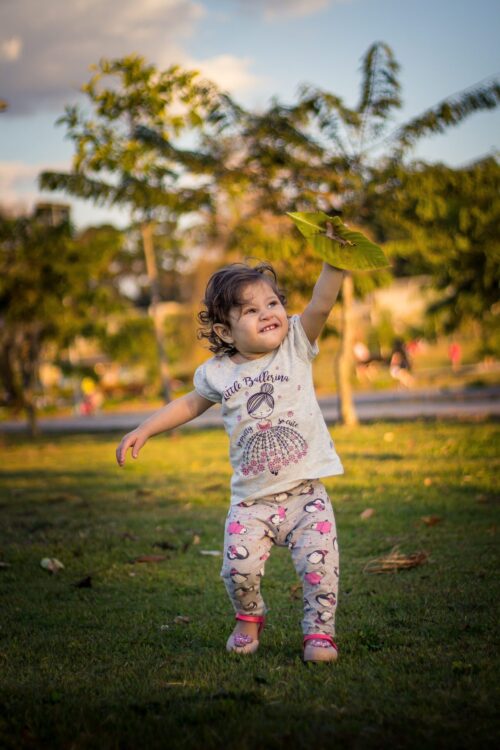What a fun stage of life! Toddlers and preschoolers are famous for walking, talking, and exploring their world in entertaining ways. They are also known for the challenges that come from pushing their boundaries and voicing their emerging opinions. When parents understand these stages better, they may find their job as parent to their young child more enjoyable.
What is a Toddler?
A toddler is a child who is mobile and beginning to talk. Toddlerhood is the developmental stage between being a baby and a preschooler. Parenting a toddler is very different than parenting a baby because:
- A toddler is mobile! A toddler can crawl, then walk, and soon run!
- A toddler starts to talk.
- A toddler has opinions. One way he/she exercises this will is by sometimes refusing food.
- A toddler has a real need to learn new things.
- A toddler loves and learns through music.
- A toddler has opinions. One way he/she exercises this will is by sometimes refusing food.
- A toddler has a real need to learn new things.

What is a Preschooler?
A child of 3 or 4 is considered a preschooler. He may or may not be going to preschool, but he is not in kindergarten and is no longer a toddler. These exciting years prepare them with knowledge before they enter their school years. Music is an important element of every age.
What should my preschooler be able to do at this age?
At age 3, he should:
- dress himself,
- pedal a tricycle and
- ask deeper questions and be inquisitive about their environment.
By age 4, a child should be able to:
- dress and undress himself,
- cut basic figures out of paper and paste them on another piece of paper,
- draw little stick figures,
- name four or five colors,
- understand your jokes, and joke with you. (Knock knock joke that don’t make sense are especially funny to a four year old.)
At age 5 kids should be able to:
- count,
- draw a person with the arms, legs, and body in the right places,
- exhibit imaginary and pretend play (sometimes with an imaginary friend),
- ride a two-wheel bicycle with training wheels, and
- articulate well enough to be understood.
More Preschooler Development Milestones
Following Instructions: Preschoolers can follow multistep instructions. Dr. Shu. However, preschoolers still need some guidance, so be as specific as possible. “Go clean your room” is too vague for a child this age. Instead, try saying, “Please put all of the building blocks in the yellow basket and place the pillows and stuffed animals back on your bed.”
Creative Play: Preschoolers can really enjoy make-believe scenarios with their friends. “They are learning how to take turns, both in play and conversation,” says Dr. Brown. “For a 2-year-old, a conversation is an opportunity to talk about herself. She’ll ask questions, demand feedback, and collaborate on pretend scenarios with her friends.” In turn, preschoolers’ dramatic play, whether it’s super heros or house, helps them further refine their social and communication skills. Encourage imagination games by providing dress-up clothes and props.
Music: Similar to all ages, preschoolers love music and can learn at a fast rate when something is put to music. They love to hear their own voice. Music encourages movement, which is very important in language development.
Sports: Preschoolers should be able to throw overhead, catch a bounced ball most of the time, and balance or hop on one foot for about five seconds. “This is a great age to play casual ‘sports’ with your kid, like kicking a soccer ball around in the backyard,” says Dr. Brown. Preschoolers are also able to understand game rules for tag and hide-and-seek. They are beginning to grasp the concept of playing fair.
(Jennifer Shu, M.D., editor-in-chief of the American Academy of Pediatrics book Baby & Child Health: The Essential Guide From Birth to 11 Years. Ari Brown, M.D., a pediatrician in Austin, Texas, and author of Toddler 411.)
GREAT DEAL –
For more information about online music classes for toddlers and preschoolers CLICK HERE.
Even though toddlers and preschoolers may seem headstrong and hard to reason with, at times, their forming opinions are signs of brain development! They are so smart! They want to be listened to and understood. Whether it is through music, outdoor recreation or reading a book together, the quality time you spend with your toddler/preschooler will strengthen your emotional bond and help both of you communicate in comfortable ways so that you can work together happily. Life with a young children is a blast! Make the most of it because it will be gone before you know it.

